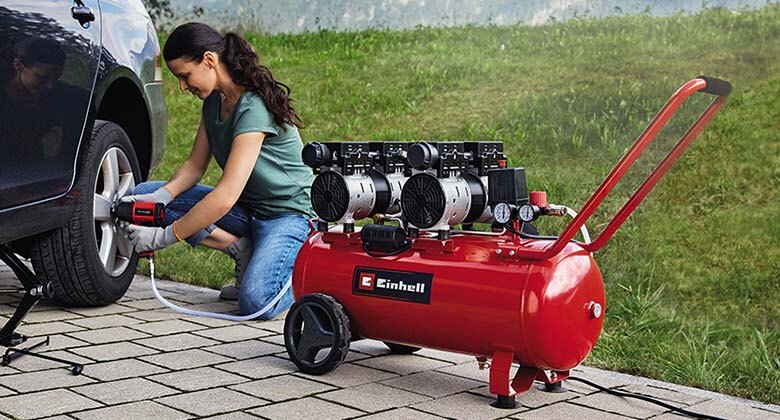Choosing the Right Air Compressor for Your Industry

An air compressor is a powerful machine that converts power into potential energy stored in pressurized air. This pressurized air can be used for various industrial applications, from powering tools to inflating tires.
How Do Air Compressors Work?
Air compressors function by pulling in atmospheric air, compressing it to increase pressure, and storing it in a tank. When released, this air can perform work, such as driving pneumatic tools or operating machinery.
Common Applications of Air Compressors
Air compressors are used in various industries, including manufacturing, construction, automotive repair, and even healthcare. Their versatility makes them an essential tool in both small businesses and large industries.
Types of Air Compressors
Reciprocating Air Compressors
These are positive displacement compressors that use a piston and cylinder to compress air. They are ideal for smaller operations requiring intermittent air supply.
Single-Stage vs. Two-Stage Compressors
- Single-stage compressors: Compress air in one stroke and are suitable for light-duty applications.
- Two-stage compressors: Compress air in two stages for higher efficiency and are ideal for heavy-duty industrial tasks.
Rotary Screw Air Compressors
These use two meshing helical screws to compress air, providing a continuous air supply. They are commonly used in manufacturing plants and automotive workshops.
Centrifugal Air Compressors
These high-speed machines use a rotating impeller to accelerate air, making them perfect for large-scale industrial applications requiring continuous operation.
Key Factors to Consider
Power Source: Electric vs. Gas-Powered
- Electric compressors: Ideal for indoor use and require a stable power supply.
- Gas-powered compressors: Suitable for outdoor and remote locations where electricity is unavailable.
Air Pressure and CFM Requirements
- PSI (Pounds per Square Inch): Determines the force of compressed air.
- CFM (Cubic Feet per Minute): Measures airflow capacity; higher CFM is needed for larger operations.
Tank Size and Duty Cycle
A larger tank allows for longer operation without frequent refilling. The duty cycle indicates how long a compressor can run before needing a break.
Portability and Space Considerations
For mobile operations, smaller portable compressors are preferable. Fixed, larger compressors are best for industrial setups.
Noise Levels and Work Environment
Some compressors generate significant noise. If working indoors, quieter models with noise-reducing features are better choices.
Maintenance and Longevity
Regular maintenance ensures durability. Oil-lubricated compressors require more upkeep but last longer, while oil-free versions need less maintenance but have a shorter lifespan.
Industry-Specific Recommendations
Air Compressors for Manufacturing
Manufacturing industries require high-powered, continuous-duty compressors like rotary screw or centrifugal models.
Air Compressors for Automotive Workshops
Automotive garages need medium to large compressors capable of handling impact wrenches, spray guns, and other pneumatic tools.
Air Compressors for Construction
Construction sites demand portable, gas-powered compressors that can handle nail guns, drills, and jackhammers.
Air Compressors for Agriculture
Farmers use air compressors for tasks like inflating tires, powering sprayers, and cleaning equipment.
Air Compressors for Healthcare
Medical air compressors must be oil-free and provide clean, dry air for respirators, dental tools, and laboratory use.
Final Thoughts
Choosing the right air compressor depends on your industry’s specific needs. By understanding different types, power sources, and features, you can make an informed decision that enhances efficiency and productivity.
FAQs
1. What size air compressor do I need?
The size depends on the tools you use. Check the CFM and PSI requirements of your equipment to determine the appropriate compressor capacity.
2. What is the difference between oil-free and oil-lubricated compressors?
Oil-lubricated compressors last longer but require more maintenance. Oil-free models are lower maintenance but have a shorter lifespan.
3. Can I use an air compressor for multiple applications?
Yes, but ensure the compressor has the necessary power, CFM, and PSI to handle all intended tasks.
4. How do I maintain my air compressor?
Regularly check for leaks, clean filters, drain moisture from the tank, and follow the manufacturer’s maintenance guidelines.
5. Are portable air compressors powerful enough for industrial use?
Portable compressors can handle light to moderate tasks, but for heavy-duty industrial use, stationary compressors are recommended.
